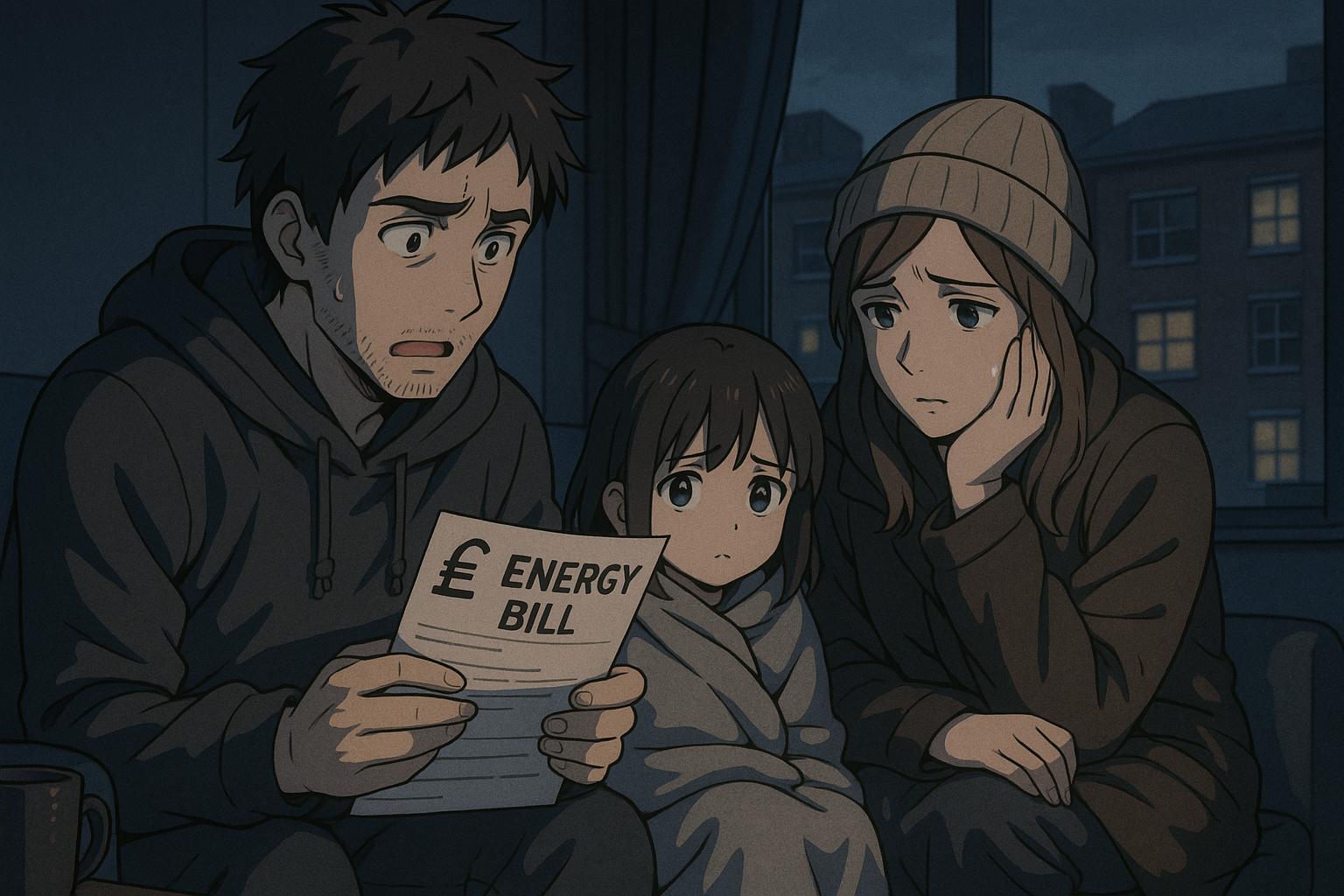A significant financial crisis is unfolding across British households, as recent data indicates a record number of individuals have been unable to meet their energy bill payments. The Office for National Statistics (ONS) reported that in April 2025, more than 2.7% of direct debit payments for gas and electricity defaulted due to insufficient funds. This is the highest default rate recorded since the ONS began tracking this data in early 2019, and it starkly contrasts with the 0.9% rate observed prior to the onset of the global energy crisis.
The implications of these figures extend beyond mere statistics. Consumer advocates have raised alarms about the potential for rising energy debts and arrears, which had already reached an unprecedented £3.8 billion by the end of September 2024—an increase of £2 billion from the beginning of that year. This escalating debt reflects a broader trend, with around one in five UK households currently in arrears with their energy suppliers, and many of these customers owe more than £1,500.
Compounding this worrying financial picture, missed payments on loans—often relied upon by families to navigate increasing living costs—have also surged to nearly 3.9%. This marks a troubling uptick from around 2.1%, which was recorded during the summer of 2020 when pandemic restrictions resulted in many households inadvertently amassing savings. The current 2025 data, juxtaposed with historical lows, illustrates a rapid decline in financial stability, amidst an environment where energy prices remain among the highest globally, primarily due to the UK's heavy reliance on gas for both electricity generation and home heating.
Simon Francis, the coordinator at the End Fuel Poverty Coalition, expressed that the figures should be alarming to the Treasury. He emphasized that the ongoing crisis of energy bills is far from over, stating that this trend poses an unsustainable path for consumer energy debt. Francis has urged the energy regulator Ofgem to expedite the introduction of a proposed debt-relief scheme, which could provide much-needed relief to those who have fallen behind on their bills. Although Ofgem closed a two-month consultation in February, a response is yet to be published, raising concerns about the timeliness of potential solutions.
The stark financial realities are echoed in a report from StepChange, which revealed that clients are now, on average, £3,911 in arrears on household bills—reflecting a 25% rise since 2023. Energy-specific arrears have spiked by 28% year-on-year, with typical debts increasing from £1,485 to £2,340 in just one year. This situation highlights a growing burden on households, where nearly 36% of adults in Great Britain reported significant difficulty affording their energy bills, with women disproportionately affected.
As energy prices fluctuate and the government grapples with how to address increasing levels of fuel poverty, the urgency for implementing effective debt management strategies has never been greater. The interplay of rising costs, payment defaults, and escalating arrears underscores not only the fragility of consumer finances but also the systemic challenges facing the UK energy sector. The data paints a concerning portrait of an economy increasingly strained under the weight of energy debt, prompting calls for immediate and comprehensive action to support struggling households.
Reference Map
- Sources [1], [2], [3], [7] inform the overall context of payment defaults and energy debt levels.
- Sources [4], [5], [6] add background on loan payments and the general financial difficulties faced by households.
- Additional concerns regarding the implications of energy price reliance and regulatory needs are taken from source [7].
Source: Noah Wire Services
